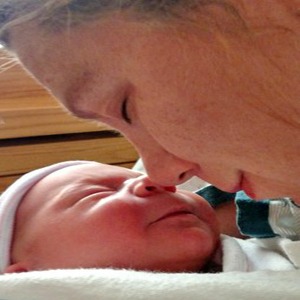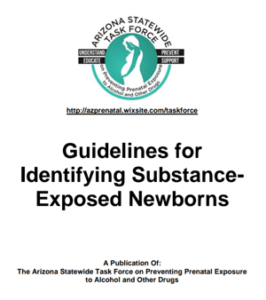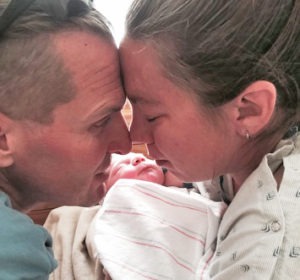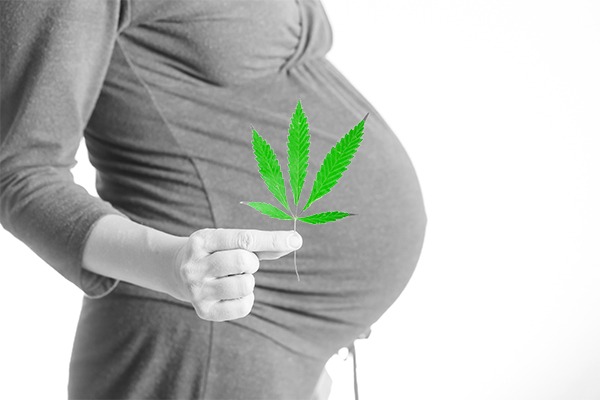Arizona Medical Marijuana Patients Guide to Family and Dependency Courts
BY ALLISON STEIN
The life of an expecting parent can be chaotic with so many things to stress and worry about. From doctor’s appointments with glucose tests, to gift registries, baby shower planning, and then preparing your house for your new baby – it’s a lot to handle. The last thing expecting medical marijuana patient parents should do is spend 9 months dreading the happiest day of their lives.
Yet, many expecting medical marijuana cardholders do exactly that, due to their choice of medicine.
As taboo as the topic may appear, this article hopes to inform expecting parents of their rights as medical marijuana patients. Our previous article, “Cannabis and Custody,” was written with the legal assistance of Sonia Martinez. Sonia is an experienced domestic law attorney, working in both family and dependency court. Martinez is also the vice president of the Arizona Cannabis Bar Association, whose mission is to ethically entwine cannabis back into the legal system, after being chastised for so many decades.

Dreading the Happiest Day of Their Lives
It’s hard to understand where the laws stand today without going back to 2016. That is when Rep. Kelly Townsend, R-Mesa, attempted to ban pregnant women from accessing the state’s medical-marijuana program. House Bill 2061 did not ban pregnant women, so much as it did STRONGLY warn, about 3 to 4 times the dangers of medical cannabis consumption while pregnant.
The warning reads as follows:
“WARNING: THERE MAY BE POTENTIAL DANGERS TO FETUSES CAUSED BY SMOKING OR INGESTING MARIJUANA WHILE PREGNANT OR TO INFANTS WHILE BREASTFEEDING.”
“WARNING: USE OF MARIJUANA DURING PREGNANCY MAY RESULT IN A RISK BEING REPORTED TO THE DEPARTMENT OF CHILD SAFETY DURING PREGNANCY OR AT BIRTH OF THE CHILD BY PERSONS WHO ARE REQUIRED TO REPORT.”
Central Registry for Child Neglect (EXPOSURE TO DRUGS, ARS 8-201)
This warning comes with a guarantee that there will be an Electronic Referral made to DCS if you continue to use cannabis while pregnant. An Electronic Referral is initiated by a professional that is mandated to do so under ARS 13-3620:
Any physician, physician’s assistant, optometrist, dentist, osteopath, chiropractor, podiatrist, behavioral health professional, nurse, psychologist, counselor or social worker who develops the reasonable belief in the course of treating a patient.”
This “warning“ cites ARS-8-201 25(c), which states:
“A determination by a health professional that a newborn infant was exposed prenatally to a drug or substance listed in section 13-3401 and that this exposure was not the result of a medical treatment administered to the mother or the newborn infant by a health professional. This subdivision does not expand a health professional’s duty to report neglect based on prenatal exposure to a drug or substance listed in section 13-3401 beyond the requirements prescribed pursuant to section 13-3620, subsection E. The determination by the health professional shall be based on one or more of the following:
- Clinical indicators in the prenatal period including maternal and newborn presentation.
- History of substance use or abuse.
- Medical history.
- Results of a toxicology or other laboratory test on the mother or the newborn infant.”
To further aid in figuring out this statute, there is an entire handbook devoted to neonatal drug exposure that was released in 2016 written by Arizona Department of Child Safety. The edition before that was written in 2008 by Arizona Child Protective Services. Arizona DCS (formerly) CPS Guidelines for Identifying Substances, Exposed Newborns, a publication of The Arizona Statewide Task Force on Preventing Prenatal Exposure to Alcohol and Other Drugs.

According to their 2008 guidelines (written before the medical marijuana program began in 2010), Marijuana use is not FDA approved and is still federally illegal. Due to this, medical marijuana patients are at times grouped with and labeled as “junkies” by the mainstream medical community. This means that the “prenatal task force” can technically target marijuana users both medical and recreational.
The Maternal Interview
According to these “guidelines” put forth by the state of Arizona’s Task Force on Preventing Prenatal Exposure to Alcohol and Other Drugs, “Prenatal screening begins initially with the maternal interview.”
The maternal interviews often leave medical marijuana patient mothers-to-be, to question how honest they should or shouldn’t be with their OB/GYN, when asked about the medications they are taking. Sonia points out is it always best to be forthcoming with your doctor but do have composure when discussing this subject.
Meaning: minimize your use, do not over glorify it. After all, we don’t do that with our normal prescriptions. Reassure your doctor you use your medication as a medication. Do not go in with the “I can do whatever I want, I have a medical marijuana card” type of attitude, because your medical marijuana card is not a get out of DCS free card.
The prenatal task force guidelines go on to read:
“The following screening criteria may identify substance use/abuse, which can impact the health of the mother and the newborn. Two basic methods are used to identify drug users: self-report or laboratory testing of biological specimens. Screening is recommended to include self-reporting by the mother, followed by laboratory testing if any of the following occur.”
Substance-Exposed Newborns
Meaning: your doctor will take either a blood or urine sample without your consent and/or knowledge, and then send it out to for laboratory for testing, if any of the following occur during OB/GYN visits, maternal interview or any time during pregnancy:
- History of previous or current substance use by mother and/or significant others living in the home, or history of a previous delivery of a substance-exposed newborn.
- Current CPS involvement; suspected or reported domestic violence
- Non-compliance with prenatal care (late entry to care, multiple missed appointments or no prenatal care)
- Evidence of unexplained poor weight gain during the pregnancy
- Medical non-compliance
- Medical symptoms of withdrawal in the mother
- Physical or behavioral signs of substance use/abuse
- Maternal medical history of Hepatitis B or C, HIV infection, or two or more sexually transmitted diseases
- Previous or current history of placental abruption or unexplained vaginal bleeding
- Cardiovascular accident of the mother
- Unexplained intrauterine growth restriction
- Preterm labor may be seen in association with substance use or abuse as reported in the literature. It may be considered prudent to screen, if any of the above factors exist in association with preterm labor.
Some of the above list is completely justifiable; however, some are just normal health risks regularly involved with pregnancy. This makes parents a little apprehensive because it leaves it up to healthcare professionals, not a judge to determine if a urinalysis or blood sample needs to go to the lab for a 5-panel drug test. No notice or warrant is required to be given to the patient that a specimen has been sent out for a toxicology report.
No Notice or Warrant Required
It’s not uncommon for your doctor to collect a urine sample from you almost every doctor visit.
This is because The American Pregnancy Association states: “Urine tests are used to assess bladder or kidney infections, diabetes, dehydration and preeclampsia by screening for high levels of sugars, proteins, ketones and bacteria. … Preeclampsia may be a concern, if higher levels of protein are found later in pregnancy, combined with high blood pressure.”
So, it’s quite possible for a drug test to be given without a person’s knowledge, with the reasoning of missing a few doctor visits.
The DCS handbook also has a section just to handle “Unborn Concerns.” This section reiterates things already touched on in this article such as, “Communication type used when there are concerns for an unborn baby, and the concerns will meet Report criteria upon the baby being born. “
Examples include:
- Allegations that an unborn baby has been prenatally exposed to drugs or substances, and the exposure was not the result of medical treatment and administered by a healthcare professional, which may include clinical indicators in the prenatal period, history of substance use or abuse, medical history, or the results of a toxicology or other laboratory test on the mother;
- Domestic violence that would place the unborn baby in serious harm or impending danger; or
- Existing mental health issues that would place the unborn baby at substantial risk of harm
That’s three to four different references as to the seriousness of this area of law and legal standing for patients against DCS.
Creating an Unreasonable Danger
Sonia Martinez’s advice provides a little comfort by saying that, “As long as there are no other illegal drugs involved and that there is no sign of abuse of medication, things normally go in the parents favor and the baby is not removed and placed in foster care.”
According to Martinez the AMMA law states, “Arizona (ARS § 36-2813(D)) No person may be denied custody of or visitation or parenting time with a minor, and there is no presumption of neglect or child endangerment for conduct allowed under this chapter, unless the person’s behavior creates an unreasonable danger to the safety of the minor as established by clear and convincing evidence.”
Still, the ominous wording that lacks definition for a lot of parents in dependency court is “creates an unreasonable danger”. This loose end makes it so that a DCS caseworker gets to define what they see as “an unreasonable danger”. With DCS’s “take first, question later” approach, it’s a traumatizing nightmare for any postpartum mother to be burdened with.
In the end it seems the best advice is not to even allow DCS into your life. Do not give DCS any reason to start a case against you and rip your new family a part.
Of course, for those that suffer from chronic pain and crippling anxiety from PTSD, the side effects of pregnancy can make the symptoms even more unbearable. Abstaining entirely is easier said than done, in some cases.
Sonia suggests that, If using medical marijuana is the safest alternative medicine you have and if you must continue use Sonia recommends the following:
- Start using a different ingestion method (stop smoking cannabis) there are patches, suppositories, and tinctures
- Ingest as little as possible and only when needed
- Being honest with your doctor
- Do not glorify your use (doctors do not want to hear you like to compete in Errl Wars)
- Treat your cannabis as you would any other prescription

Fathers Beware
Fathers fall under the same law as medical professionals. Father will be and are included in the electronic referral for “failure to protect the unborn child”. If there is any illegal substance found in any prenatal appointments of the mother, the father will also have to submit to a drug test. Therefore, it is highly advised, that if both mother and father of the unborn child plan on testing positive for the active ingredient in cannabis (THC), that you both have a current medical marijuana card. Your card does not ensure your protection, but it does offer more protection than not having one.
When dealing with being a medical marijuana patient and expecting a child, things can become a little hard to navigate, especially with the legal system. Parents should not fear an agency that is meant to protect children, because they both have the same goal – what is in the child’s best interest, right?
If that were true, then why were there 42 cases taken to the Court of Appeals involving DCS and medical marijuana patients just in 2018 alone?
Keep in mind, most cases don’t make it to the Court of Appeals and those that do normally do not get there with a court appointed attorney. Sadly, until cannabis is federally legal nationwide, there is always the dangerous gamble that comes with using medical marijuana and being a parent.
NOTE: You can learn more about Erika Hanchett and her family here

—Allison Stein writes for Arizona Cannabis Monthly and Arizona NORML.



